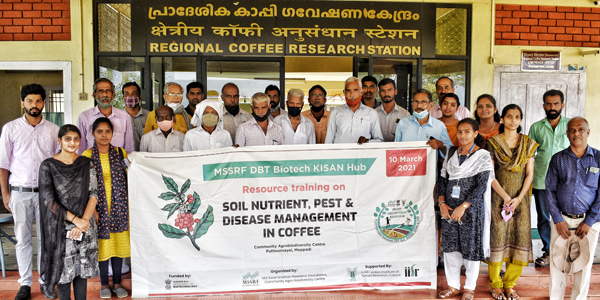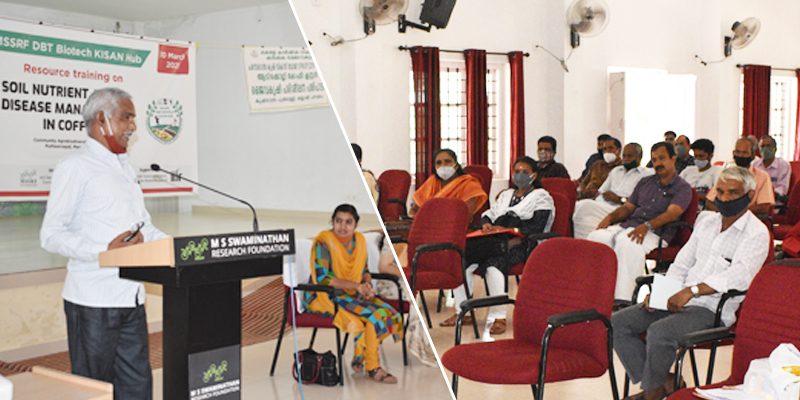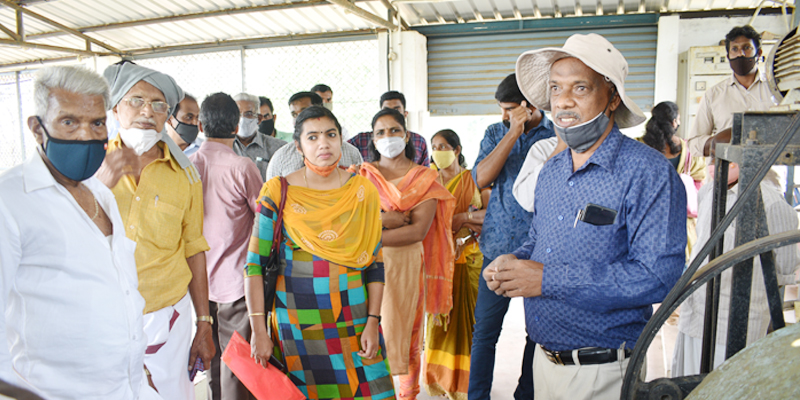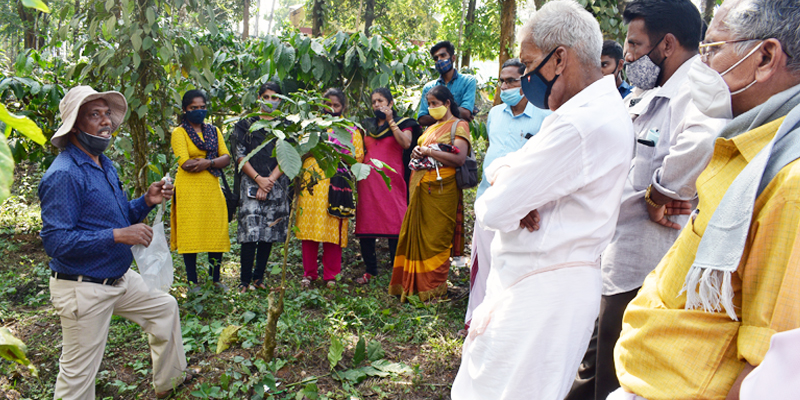The “Biotech-Krishi Innovation Science Application Network (Biotech-KISAN) – a mission programme of Department of Biotechnology (DBT), Govt. of India, New Delhi aims to establish Biotech hubs across India. MSSRF has been granted the project to establish a Biotech KISAN hub in the aspirational districts of Eastern plateau & hills in Odisha and the Western Ghats in Kerala with a focus on improving farming practices, sustainable use of soil and water and creating access to rural processing technologies, value addition and markets.
The Main Hub is set up at MSSRF, Chennai and one of the Sub Hubs 2 is set up at Community Agrobiodiversity Centre, MSSRF, Wayanad in partnership with ICAR – Indian Institute of Spices Research (IISR), Kerala. The hub creates a platform for knowledge sharing between farmers and scientists to address location-specific problems in partnership with collaborating institutions and also organizing fellowship programmes for farmers (including special fellowships for women farmers) in the form of Farmers’ Training/workshop/awareness programme/Kisan melas etc.
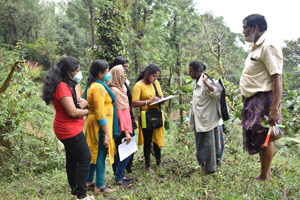
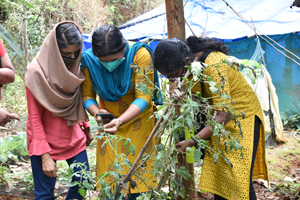
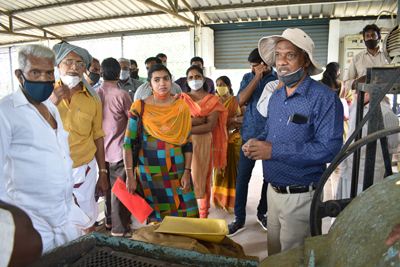
MSSRF- CAbC is one of the projects facilitating institutes implementing this project in 5 villages of Wayanad district in partnership with the ICAR- Indian Institute of Spices Research, Calicut. The Key focus is on transferring science and technological innovations for managing problems in agricultural activities, soil health, building leadership and entrepreneurship skills to promote sustainable models for agri-business and agro-value chain development. In the district of Wayanad, five villages were selected namely (i). Noolpuzha, (ii) Pozhuthana, (iii) Pulpally, (iv) Panamaram (v). Padichira for the initial implementation of the project. The project initiated in the year 2020 and will continue for the next two years.
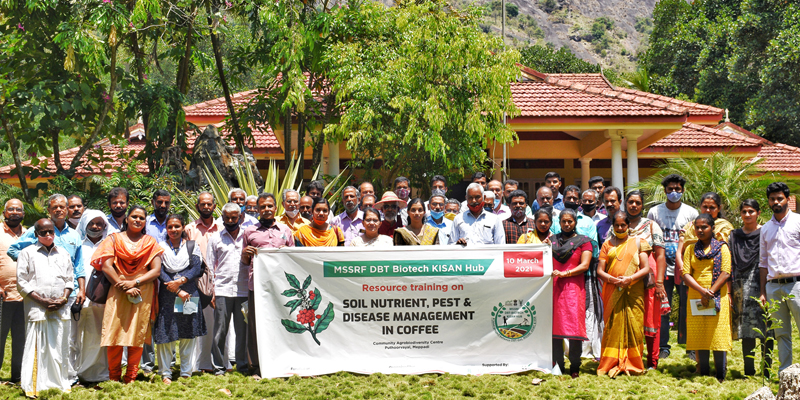
Project Achievements:
- During the project period, a total of 300 beneficiary farmers have been identified across the selected 5 villages with 50% being tribal farmers. It was found that around 1000 acres area was covered with pepper, coffee and fruit crop cultivation.
- 3 training programmes were conducted and a total number of 100 farmers participated from the selected villages. Training on soil and plant health management was conducted involving experts from ICAR- Indian Institute of Spice Research for spice farmers in Wayanad district. Resource training on soil nutrient, pest and disease management in coffee for 40 coffee farmers from Padichira village was conducted along with an institute visit in collaboration with Regional Coffee Research Station, Chundale.
- A visit to ICAR- Indian Institute of Spice Research, Calicut was conducted for selected 20 spice farmers
- Field visit and scientist farmers’ interaction programme was also conducted in the selected villages in which more than 50 field visits and 5 scientist-farmers interaction programmes were conducted in the selected villages from Wayanad aspirational district.
- From the selected villages, around 175 soil samples were collected for testing. During soil sample collection, project team demonstrated proper soil sample collection technique to the farmers. Soil Health Cards will be issued to all the farmers with necessary recommendations based on the soil test report.
- Primary survey was conducted in the selected villages to understand the problems in pepper, ginger, coffee and fruit cropping systems and work towards establishing linkage with experts in the field.
- Plant clinic activities were also conducted in the selected villages to identify the pests and diseases prevailing in the farmer’s field to provide precise management and control measures.

